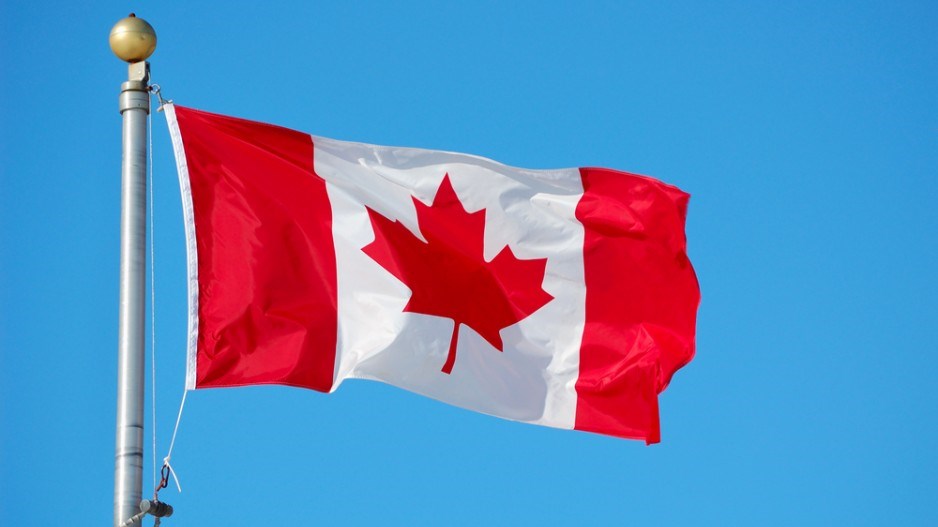With Canada Day approaching, I felt it was a good time to revisit a survey I had originally conducted in 2008. Back then, Canadian respondents were offered a list of 12 institutions and features that can elicit feelings of pride, and were asked if each one of them made them proud.
A lot has happened since then, including the Winter Olympics in Vancouver and a change in the country’s federal government. The results of the 2019 survey conducted by Research Co. outline a powerful connection between Canadians and specific aspects of life in the country, as well as a noticeable gloominess about the justice system.
There are only three institutions and features that elicit pride from at least four in five Canadians: the flag (93%), the armed forces (89%) and the economy (80%). There is no surprise on the first two findings, but pride in national finances increasing by 18 points in 11 years is certainly eye-catching.
Men (90%), residents aged 55 and over (86%) and Ontarians (also 86%) are more likely to say the Canadian economy makes them proud. There are differences along political lines, with federal Liberal supporters in 2015 feeling better (94%) than Conservatives (85%) and New Democrats (71%).
Three other institutions and features make at least seven in 10 Canadians proud: the health care system (77%), hockey (72%) and the state of democracy in Canada (70%). It is here where we start to witness some variance. Canadians aged 18 to 34 are less likely to feel pride over the state of democracy in Canada than their older counterparts. Also, significantly fewer Quebecers are proud of the health care system (58%) than residents of other regions are.
More than half of Canadians express pride in multiculturalism (66%), Indigenous culture (56%) and bilingualism (55%). As expected, Liberal voters in 2015 seem extremely supportive of two historical policies championed by the current governing party (80% for multiculturalism and 66% for bilingualism).
British Columbians are prouder of multiculturalism (73%) and Indigenous culture (63%) than are all other Canadians. If Quebec shows a bit of disdain for the health care system, it is the rest of Canada that does not share the love of Quebecers for bilingualism. Across the province, 64% of Quebecers are proud of bilingualism – nine points above the national average.
The final three institutions and features on the list make fewer than half of Canadians proud: the monarchy (47%), Parliament (45%) and the Canadian justice system (40%).
Quebec brings down the national numbers on the monarchy, with a paltry pride rating of 22%. Every other province is at least 20 points higher. Still, only 36% of Canadians felt pride about the monarchy in 2008. This represents an 11-point gain in just over a decade.
And what a decade it has been, with royal visits, weddings and children for Princes William and Harry. However, our surveys have shown the reticence of Canadians to embrace Prince Charles as a future head of state, and his significantly lower favourability rating when compared to Queen Elizabeth. The pride trend has been positive for the monarchy, but it may change depending on how Prince Charles performs.
On Parliament, the numbers are also better than in 2008, when only 32% of Canadians were proud of the national legislature. Unsurprisingly, Liberal voters feel proudest right now (59%), while Conservatives and New Democrats are more subdued (37% and 40% respectively).
In a decade that saw pride grow for most features and institutions, the Canadian justice system is embarrassingly stagnant (42% in 2008, 40% in 2019). Western Canadians are particularly pessimistic. Only 33% of those on the Prairies are proud of the justice system. In British Columbia, the proportion falls to a Canada-wide low of 27%.
For British Columbians, the decade has seen a rise in the perception of criminal activity, as well as expected prosecutions bogged down in the courts. High-profile trials have ended in deadlocked juries, and a heavily anticipated money laundering case was stayed last year. These are some of the setbacks that have British Columbians, more than Canadians in any other region, feeling let down by the justice system.
Mario Canseco is president of Research Co.
Results are based on an online study conducted from May 31 to June 3, 2019, among 1,000 adults in Canada. The data has been statistically weighted according to Canadian census figures for age, gender and region in Canada. The margin of error, which measures sample variability, is plus or minus 3.1 percentage points, 19 times out of 20.




